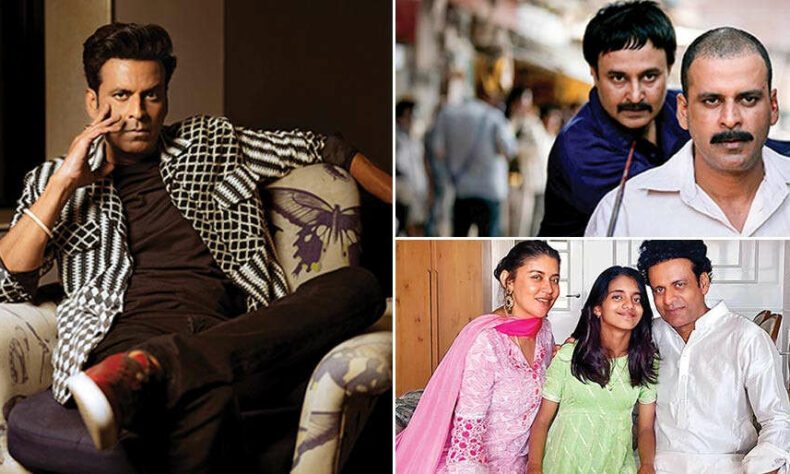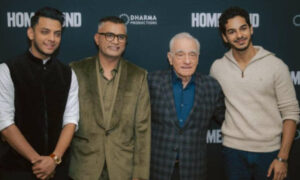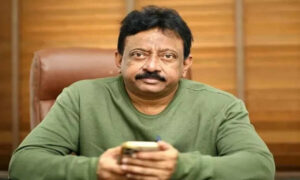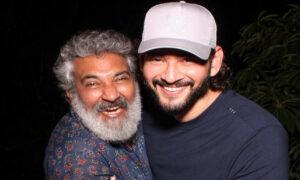The city is drenched in rain when I arrive at Manoj Bajpayee’s home. There’s an unhurried stillness about the afternoon, and it feels like the perfect setting to meet an actor whose work has always spoken with quiet intensity. He welcomes me with a smile that instantly melts away any formality. Dressed in crisp casuals, he pours himself a cup of tea and insists I join him. Soon, we are sharing hot chai and a spread of home-cooked snacks, the kind of hospitality that makes you feel less like a journalist and more like a guest at his table. The conversation flows as easily as the rain outside. I confess that Jugnuma gave me goosebumps, and he responds with a modest nod, almost brushing off the compliment. From there, we move into deeper territory, how his idea of success has shifted over the years, why he guards his family life so carefully and the dreams that still keep him restless. At one point, he reflects on the advice he wishes he could give his younger self, words that carry both hard-won wisdom and a disarming honesty. Here are some of the highlights from our exchange…
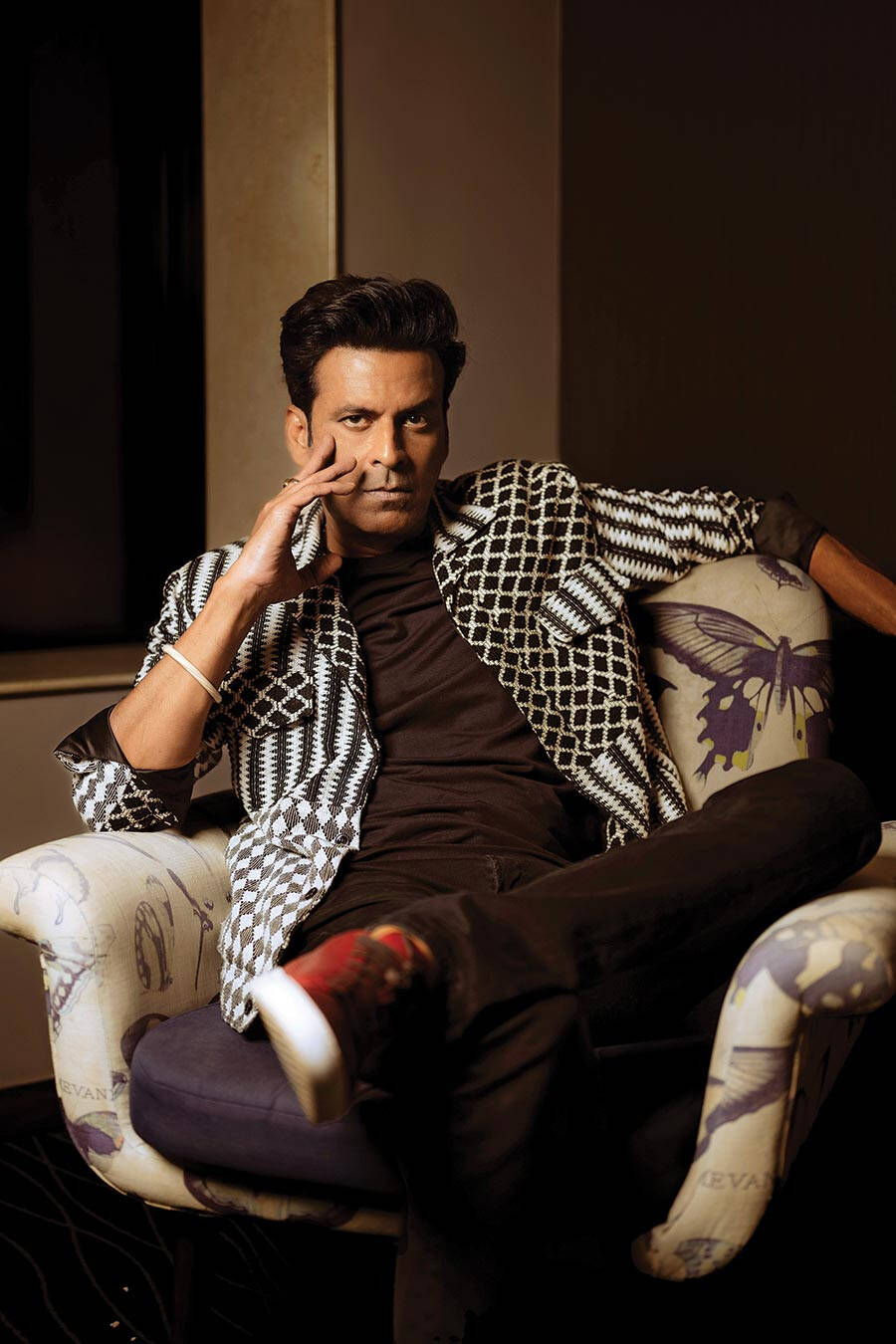
Once you shared with me that you choose films so that something new gets added to your filmography. What novelty has Jugnuma brought to it?
Jugnuma sits right at the top of my filmography. What unfolds in this film is so magical, so beautiful, that until now you could only have read about it in novels. This is the first time I’ve seen such a vision replicated so evocatively on the big screen. The story is about self-discovery, about those moments when you just want to let go of everything, fly away, be your own person and detach from everyone.
Beyond the film, what have you discovered about yourself?
Initially, I used to believe that the only purpose of life was to be an actor and I dedicated myself entirely to that. But over time, I realised that an individual doesn’t have just one purpose. The greatest purpose is to seek the spiritual truth about one’s soul. The purpose of the soul is different from that of the physical body, that is what I’ve come to understand.
In our last conversation, you mentioned practising anger management. How has that journey been?
I’ve managed my anger through yoga and meditation. I feel like a different person today. The things that troubled me earlier, I haven’t suppressed them, I’ve eliminated them. I brought discipline into my life and that’s when success followed. Today I’m very happy, deeply satisfied, with my family, my work and with the discipline I live by. In Mumbai, people usually look forward to evenings, but I look forward to mornings. I go to bed early so that I can wake before the city, meditate and then open my eyes to the sunrise. That feeling, the sunlight touching your face after meditation, is indescribably beautiful. But yes, it takes practice.
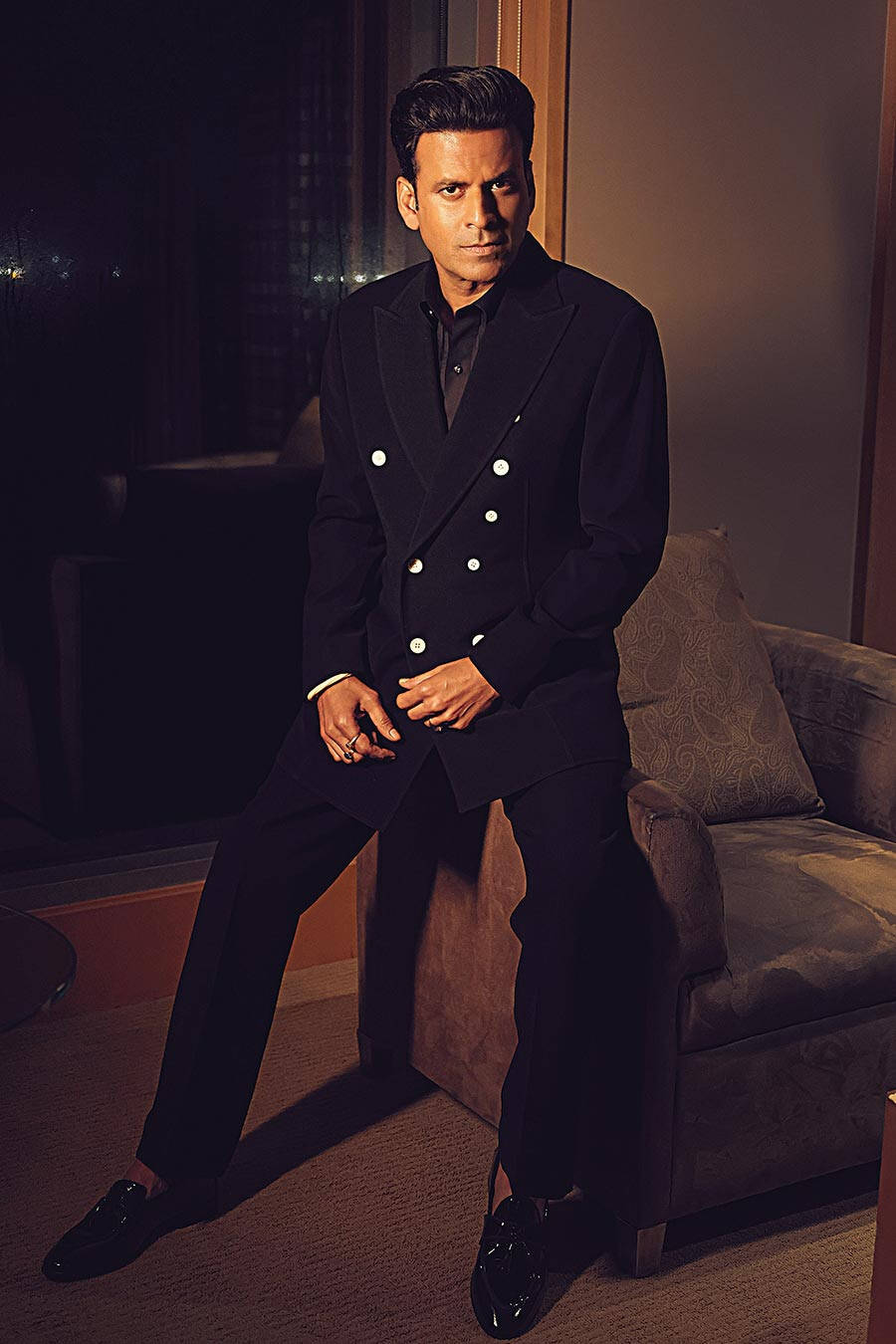
Does this discipline extend to acting? Do you still practise your craft?
Absolutely. Even today, I rehearse a lot. I rehearse so much that sometimes my co-actors get tired, but I never do. Every repetition reveals something new about the craft.
After 30 years in the industry, it’s remarkable you still rehearse so much.
I don’t act to earn a living. I act because I love the process. If I had been chasing fame or money, I would have burnt out long ago. But acting takes me into another zone. I feel most alive when I’m reading a good script, rehearsing, facing the camera, or even meditating in the morning.
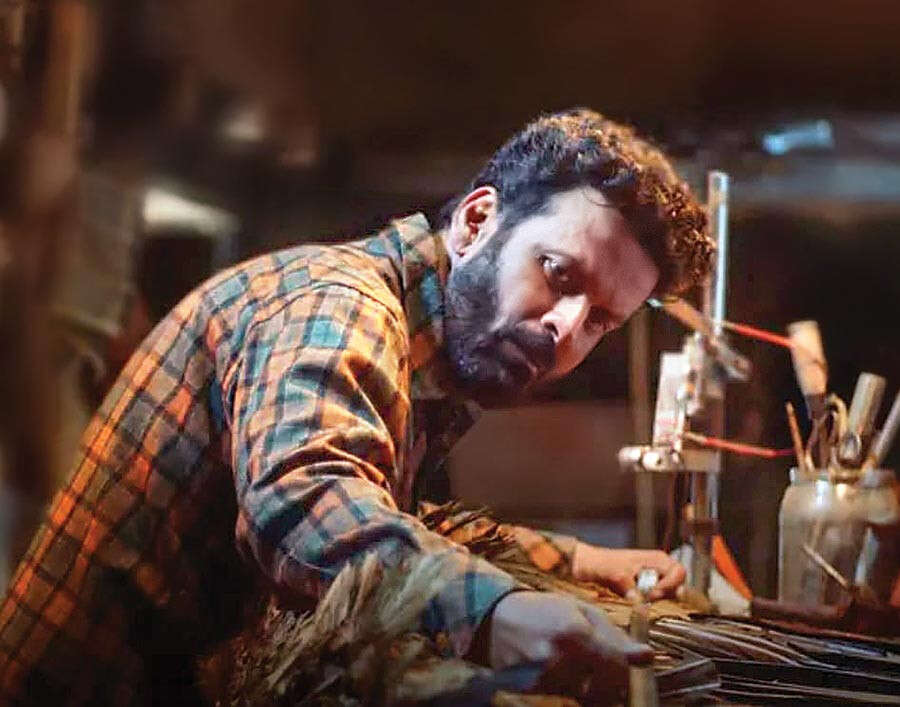
With such an intense schedule, do you ever feel the need to take a break?
Of course. Whenever I feel exhausted, I give myself a break. I tell my manager I won’t take up work for six months.
And what do you do during that time?
Nothing. The joy of doing nothing is extraordinary. Sometimes you must let yourself be still, lie down staring at the ceiling, or sit at the window and simply watch the world outside. Don’t read, don’t scroll on your phone, just be. The joy of doing nothing can be greater than the joy of doing something.
Your simplicity reflects in your characters. Do you think that helps you bring authenticity to them?
Maybe. But authenticity doesn’t come only from simplicity, it comes with practice. The conviction with which I play a character is 200 percent. I don’t want Manoj Bajpayee to be seen on screen, I want the character to live. So I try to understand them deeply, even become them, rather than playing them from the outside.
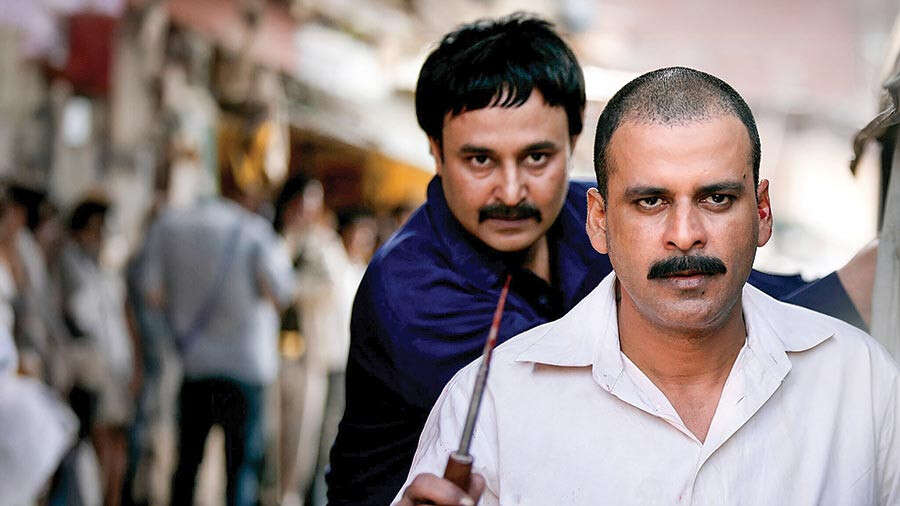
You’ve often said you aren’t scared of flop films but of bad films. Have you faced that?
(Laughs) Many times! Sometimes I realise it on the very first day of shooting, “Oh no, I’ve made a mistake.” Then nothing can be done except to celebrate and move on. And sometimes the realisation comes only after watching the final product. We actors follow the director’s instructions to the letter, but occasionally the film turns out entirely different. As they say, even a mole on a beautiful face can make it more striking, but not always.
You once said you don’t belong fully to this industry, that you remain on its borderline. Do you still feel that way?
Well, look around, you’re interviewing me in Lokhandwala, not Bandra. That says it all. I’ve always been on the fringe and I don’t aspire to move “inside.” My films are made here in Lokhandwala or Andheri, not in the mainstream hubs. But I’m proud that I’m recognised for my kind of cinema. That, to me, is a big achievement.
You’ve been friends with Anurag Kashyap for years. How well do you understand each other?
Quite well. Though Anurag is younger, both our journeys have been tough in different ways. One thing I’ve learnt is to accept him fully, flaws and all. I’ve never had issues with him, nor expectations. We meet occasionally, always warmly. I respect him immensely, especially as a writer and filmmaker. Main uski filmon ka hamesha mureed raha hoon. He is blunt and truthful about my work, and I am equally honest with him.
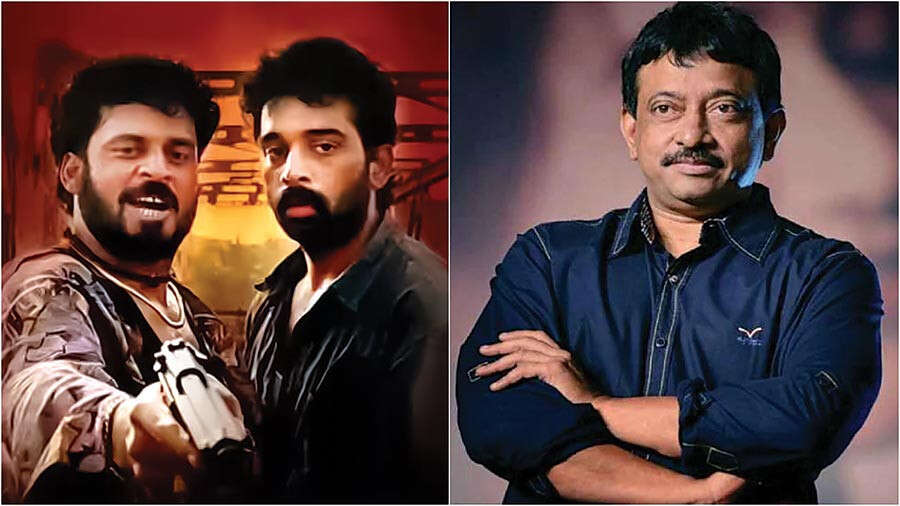
Do you call out each other’s mistakes?
Yes. He does listen to me, though he rarely listens to others. He might consider inputs from Piyush Mishra or a handful of people, but I make sure I tell him the truth and he respects that.
Success comes with sacrifice. What price have you paid?
The price is something I can never recover, I lost precious years with my parents. I left home at 18 and rarely returned. In my obsession with acting, I devoted everything to the craft. My parents are no longer here and sometimes I feel we never really understood each other. Ironically, when they shifted from the village to Delhi, I had already moved from Delhi to Mumbai. Since childhood, being in hostels and boarding schools meant I saw them only during holidays. Today, I remember them with deep fondness. My father, despite being a villager, gave me absolute freedom. My mother, though she didn’t understand my world, still accepted it wholeheartedly.
Do you now make sure to spend more time with your family?
Yes, absolutely. I spend as much time as I can with my daughter, who’s now 14. Whether she sits with me under the excuse of studying Hindi or just to chat, I cherish it. I balance my commitments, when it’s time to work, I work wholeheartedly. Work, to me, is vital. It not only allows me to give my family the life they want, but it also helps me keep growing as an actor.
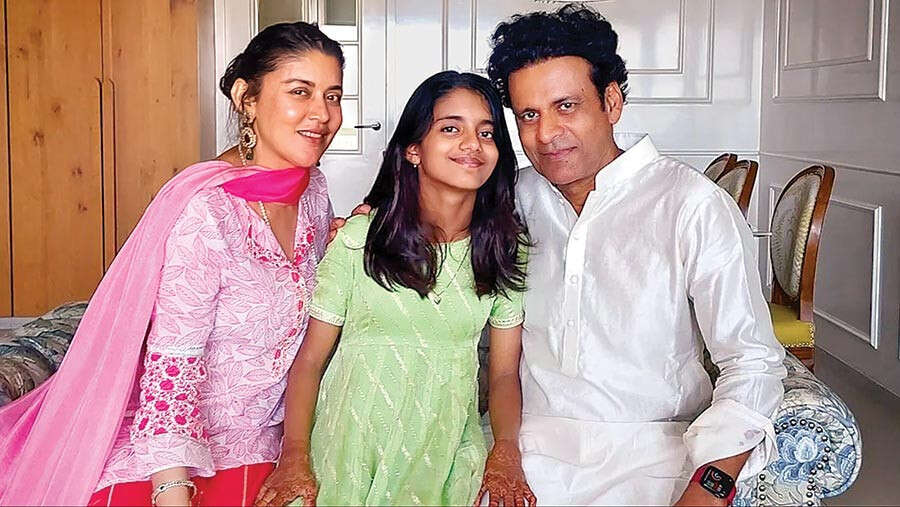
What advice would you give aspiring actors?
This profession is a gamble, a huge risk we’ve taken with our lives. What sustains us is passion and honesty towards the craft. I’ve never chased stardom, money or luxury. Yet, by God’s grace, I’m in a position where I can provide comfort to my family and give them the space to follow their own dreams.
What more do you want to achieve in life?
Nothing, really. Jim Sarbh recently said something that resonated with me. He compared life to climbing mountains, you conquer peak after peak, only to look down and find a beautiful lake below. Then you wonder why you climbed so high when the real joy lies at the lake. Life is like that, it keeps unfolding. I simply want to enjoy the process, the journey, every step of the way.
